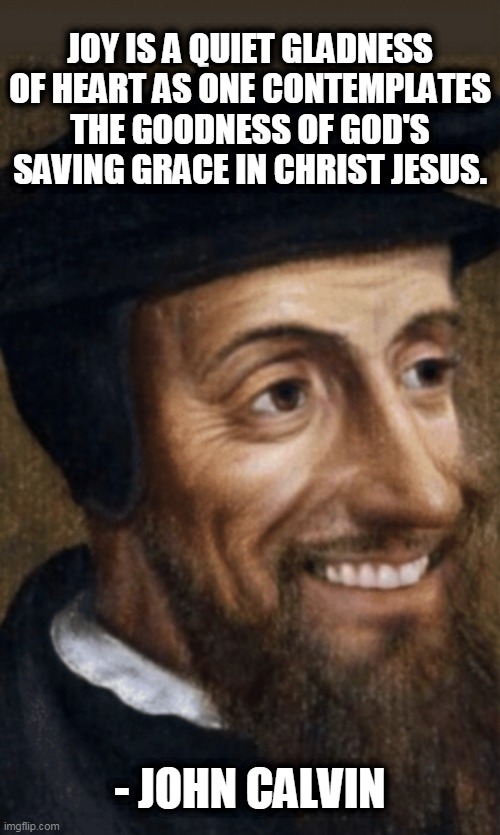Taodeching
Well-Known Member
- Oct 29, 2020
- 1,540
- 1,110
- 53
- Country
- United States
- Gender
- Male
- Faith
- Christian
- Marital Status
- Married
- Politics
- US-Others
Here are quotations from the early church fathers supporting the five points of Calvinism, most of whom from before the time of Augustine:
Calvinism in the Early Church (The Doctrines of Grace taught by the Early Church Fathers) | Reformed Theology at A Puritan's Mind
Here are passages from the Bible supporting the five points of Calvinism:
What is Calvinism and is it biblical? What are the five points of Calvinism? | GotQuestions.org
Did the Early Church Fathers teach Calvinistic Doctrines?
Prior to the writings of Augustine, the Church universally held that mankind had a totally free will. Each man was responsible before God to accept the Gospel. His ultimate destiny, while fully dependent on God’s grace and power, was also dependent on his free choice to submit to or reject God’s grace and power. In the three centuries from the Apostles to Augustine the early Church held to NONE of the five points of Calvinism, not one. The writings of the orthodox Church, for the first three centuries, are in stark contrast to the ideas of Augustine and Calvin. Man is fully responsible for his choice to respond to or reject the Gospel. This was considered to be the Apostolic doctrine passed down through the local church elders ordained by the Apostles, and their successors. Below we have listed a few representative quotes from the earlier writers in order to give the flavor of the earliest tradition regarding election and free will. Some deal with the subject of perseverance and apostasy.
----------------------------------------------------------------------------------------------------------------
Dissing the Fathers
Calvin’s low opinion of the Greek fathers comes across loud and clear in the following sentence:
Further, even though the Greeks above the rest—and Chrysostom especially among them—extol the ability of the human will, yet all the ancients, save Augustine, so differ, waver, or speak confusedly on this subject, that almost nothing certain can be derived from their writings. (Emphasis added.)
The above sentence is pure dynamite. One, Calvin was aware of the early fathers (“all the ancients”) affirmation of free will. Two, that he believed the church fathers spoke “confusedly” meaning there was no patristic consensus on free will. Three, nothing worthwhile can be learned from the early church fathers on this matter. Four, the sole exception among the early church fathers is Augustine.
These are all very interesting theses, but like any set of theses they need to be backed up evidence and arguments. It is disappointing, therefore, to find that Calvin disdains to provide supporting evidence.
Therefore, we shall not stop to list more exactly the opinions of individual writers; but we shall only select at random from one or another, as the explanation of the argument would seem to demand.
Calvin Dissing the Fathers – Orthodox-Reformed Bridge
Upvote
0






